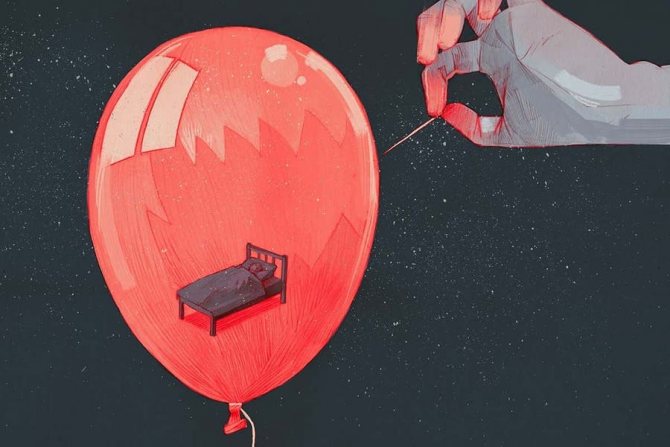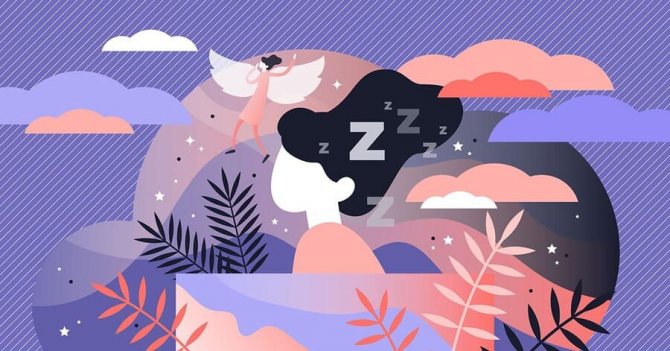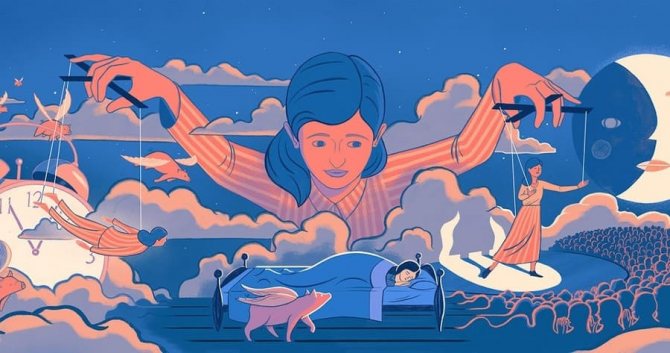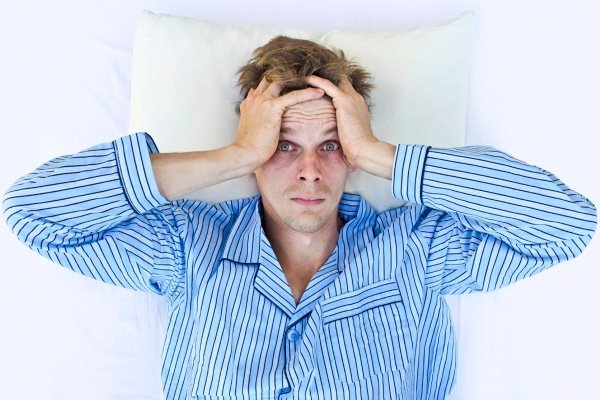Home / Important to know / Kingdom of Morpheus
Back
Published: 02/27/2021
0
707
There is no such person who does not dream. After immersion in the kingdom of Morpheus, dreams come to everyone, regardless of age. Why then are some people sure that they have no visions at all? If you stop having dreams, then there must be reasons for this, which we will try to figure out further.
- 1 Why do dream visions disappear?
- 2 Psychological view of the problem
- 3 Theories confirmed experimentally
- 4 How dreams are remembered
- 5 In what phase should you wake up? 5.1 Methods for waking up during REM sleep
- 6.1 Bringing back bright colors
Do some people really not dream?

Long-term observations of psychiatrists, somnologists and neurologists allowed us to formulate the conclusion that absolutely everyone dreams .
For example, the famous somnologist Patricia Garfield, one of the founders of the International Association for the Study of Dreams, wrote in her bestseller “Creative Dreaming” about the results of research confirming that every person sees 4-5 dreams per night .
Garfield notes that a person who says that he does not have dreams simply does not remember them. These statements are proven by the results of encephalograms of dozing patients. The devices did not detect the “presence of pictures” only in people with head injuries.
The expert of the European Society of Sleep Research, Alexander Kalinkin, shares the same opinion. He believes that all people see dreams, but not everyone remembers them.
Do you remember your dreams?
Yes
52.73%
No
47.27%
Votes: 55
Discussions on this topic continue, since the functioning of the brain, especially during sleep, has so far been little studied.
Dream mechanism
In fact, every person dreams every night, but not everyone remembers them. Every night you see 4-5 dreams, depending on the duration of sleep.

Find out what awaits you today - Horoscope for today for all zodiac signs
Due to numerous requests from subscribers, we have prepared an accurate horoscope application for mobile phones. Forecasts will arrive for your zodiac sign every morning - it's impossible to miss! Download for free: Daily Horoscope 2020 (available on Android)
It works like this: sleep consists of several alternating phases:
- Slow sleep is deep sleep. The phase lasts from forty minutes to several hours. If you look at a sleeping person in a slow sleep cycle, you will notice that his breathing is deep and his posture is motionless. There are no dreams at this time.
- The fast phase lasts from twenty to forty minutes, and it is during this time that a person dreams. If you look at the sleeping person, you will notice that he moves his arms or legs, his breathing becomes intermittent, he changes positions.
Whether you remember the dream or not depends on the phase during which you were awakened. If it's quick, you can tell what you dreamed.
The mechanism of dreams: when do they occur?

Some dreams help our brain store information and process thoughts, feelings and events of the day. Others may simply be the result of normal brain activity and mean little or nothing.
Scientists have not yet come to a common answer to the question of why people dream. But it is known at what moment dreams arise.
Let's start with the fact that a person's sleep period is divided into five phases, four of which are occupied by slow-wave sleep , and one phase by fast sleep (REM phase) .
REM and NREM sleep alternate throughout the night.
First, you fall into slow-wave sleep and go through all its stages, then the REM sleep phase begins. And this happens several times a night. This cycle is called the sleep cycle.
The number of cycles per night can vary from 4 to 6. Moreover, with each cycle the proportion of slow-wave sleep decreases, and the proportion of REM sleep gradually increases. A complete sleep cycle takes on average 90 to 110 minutes.
Scientists have found that a person dreams not only during REM sleep, but also in the slow-wave sleep phase. But the most vivid, lasting and memorable dreams come in the REM sleep phase.
The mechanism of dream development
In the previous section, we found out that night visions come in a rapid phase, which occurs up to 5 times per night. That is, we see about five different films. But what is the basis for what we dream about today?
According to experts at the University of Illinois, dreams can be compared to a symphony:
- The very first vision, the “overture,” sets the tone for the entire night theater of dreams, based on thoughts about the result of today.
- The next two dreams are memories, both distant and recent, but distorted by our current mood.
- The fourth vision turns to the oldest memory episodes, cleaning and sorting them.
- The last, longest - the apogee of everything seen during the night, the final analysis of the information takes place.
It looks like a person is watching a real movie with a number of deviations in different scenes.
Psychology believes that a dream contains the answer to the dreamer’s question about an internal conflict, the development of a disease, or a recent quarrel. But if what is seen is based on memories or known problems, why are the images, worlds and spaces of night visions so distorted?
It is important to know! Sigmund Freud believed that dreams are censored. While a person is awake, his hidden desires are in the margins of consciousness. When he falls asleep, they begin to come out, and when confronted with the “guardian”, they take on a distorted appearance. Therefore, it is difficult to understand what a phenomenon seen at night could mean.
A vision develops from memorable events, thoughts, plans, unrealized desires, and can be prophetic and meaningful. Memories and dreams are inherent to absolutely everyone, regardless of age, status, gender. But, nevertheless, sometimes people do not dream.
Why I don’t have dreams: the main reasons

We have already found out that in a normal state, people see several episodes of dreams during the night. But there are reasons that can deprive a person of night dreams or prevent him from remembering them.
Fatigue
Physical or mental fatigue requires complete relaxation. A person usually “switches off” as soon as he finds a comfortable position, falls into deep sleep, and does not wake up until he has fully recovered.
In such a state, it is unlikely that you will be able to remember even some excerpts from your dreams.
Sleep problems
Frequent waking up and short drowsiness do not allow you to fully fall asleep and enter the rapid phase. In such a situation, the night's sleep either passes without pictures, or the person completely forgets about what he dreamed.
The picture becomes more complicated with nervous breakdowns, stress, constant anxiety, depression, when a negative emotional background contributes to sleep disturbances.
Taking certain medications
Sleeping pills and sedatives relax the body's muscles and block nerve impulses.
Pharmacological effects can prevent entry into the REM sleep phase , in which a person sees the most vivid and memorable dreams.
Alcohol or drug intoxication
Alcohol and opioids have a powerful effect on sleep regulation, and in a fairly wide range - from constant drowsiness to persistent insomnia (insomnia).
Systematic use of various natural and synthetic stimulants destroys the architecture of sleep, suppressing the rapid phase , reducing or increasing the transitions between stages. Unhealthy sleep is accompanied by a lack of dreams.
Uncomfortable position, pain
If, due to circumstances, a person wants to take a nap in an unusual environment or an uncomfortable position, the body will not be able to relax, and the brain will control the situation.
Frequent awakenings and increasing fatigue will lead to the fact that a person either does not see dreams or does not remember them in the morning.
Why do dream visions disappear?
Psychologists still have not fully figured out how dreams arise in the brain at night. The phenomenon is unique and the mechanism is difficult to understand. If you stopped having dreams, it means there are good reasons for this, among which they often note:
- Chronic fatigue. The brain simply turns off for some time after falling asleep, unable to analyze the day's information. After such a rest, a person, as a rule, does not have the feeling that he had a great rest. The next morning you feel exhausted. But with the restoration of regular sleep phases, everything returns to normal, and dreams begin to occur.
- A person does not dream, which means that an uncomfortable posture or the presence of pain prevents this. These factors do not allow you to fall asleep normally and relax. The brain is forced to control the body, and there are frequent awakenings during the night.
- Increased nervous excitement. This condition affects the quality of night's rest, normal sleep is disrupted, and the fast phase practically disappears, because it is impossible to completely immerse yourself in the slow phase. Immediately after falling asleep, the subconscious signals a loss of control and brain activity resumes. If this condition is observed for a long period, then everything can end in mental disorders.
- Serious pathologies of the cardiovascular and respiratory systems often become the cause of lack of dreams. This happens because the alternation of periods of sleep is disrupted, the person often wakes up and the body does not receive proper rest.
- Taking large amounts of alcohol or sleeping pills causes the brain to turn off, but not of its own free will, but as a result of blocking nerve impulses. It creates the feeling that the body will rest normally, which is why some people use alcohol as a sleeping pill, but this opinion is very erroneous.
Ethyl alcohol deprives a person of the rapid phase of sleep; as a result, it is not possible to fully recover, fatigue accumulates, and the situation is fraught with the appearance of not only problems with sleep, but also with health.
What to do to have dreams: how to correct the situation

The founder of psychoanalysis, Sigmund Freud, believed that dreams are a person’s subconscious desires and intentions, processed by the mind into visual images and symbols.
If a person stops having dreams, you need to determine the reason. In the absence of serious health problems or bad habits, the situation can be corrected on your own. For example, reconsider your lifestyle: organization of day and night routines, daily diet, level of physical activity, and so on.
Dreams will return gradually as soon as a calm, measured life without emotional turmoil is established.
Why a person does not remember dreams: 4 reasons

It is normal to forget the plot of a dream. But why does this happen? In addition to the reasons that we wrote about above, scientists put forward several more theories on this topic; let’s look at the most popular ones.
- Harvard Medical School sleep researcher Robert Stickgold believes that some people don't remember dreams because they wake up to an alarm clock . The fact is that the sound of an alarm clock causes a sharp jump in the level of norepinephrine (“rage hormone”), which interferes with remembering dreams.
- Scientists from Monash University in Melbourne came to the conclusion that a person does not remember dreams because the hippocampus - the area of the brain responsible for moving memory from short-term to long-term - does not immediately start working after waking up . This is why the brain cannot retain information about dreams.
- Ernest Hartmann, professor of psychiatry at Tufts University School of Medicine, wrote in Scientific America that we forget unimportant dreams . A person remembers only what has emotional significance, what he thinks about. That is, the brain removes unnecessary information so as not to “clutter up” the memory.
- Researchers from Italy have concluded that the ability to remember dreams declines with age . This is why older people are not often able to talk about what they saw in their dreams.
Why does someone see them but not remember them?
Scientists who have studied this issue have proposed several theories.
The part of the brain responsible for moving information from short-term memory to long-term memory (the hippocamus) falls asleep last . Perhaps he is also the last to wake up.
Thus, immediately after waking up, a person's dream is in short memory.
But it never makes it into long-term memory, because the hippocam has not awakened, which means it cannot perform its functions.
In addition, during sleep, the hippocam actively processes the information acquired during the day, sorts and distributes it. Because of this, he becomes immune to dreams.
Another theory is the critical ratio of neurotransmitters . During sleep, the proportions of acetylcholine and norepinephrine change (relative to daytime proportions). But these mediators are inextricably linked with the process of memorizing and processing information.
The latest theory is that the brain is selective about dreams. While awake, we may not remember which road we took to get to work, but at the same time we can clearly grasp and imprint in our memory the flower that came along the way.
Likewise, during rest, the brain can highlight a small fragment of a vision, or it can skip a full-fledged plot.
How to remember dreams and whether you need to write them down: rules and recommendations

Within 5 minutes of waking up, a person forgets 50% of his dreams. After 10 minutes he will barely remember 10% of his dreams. If you want to remember your dreams, you need to follow certain recommendations. And you can’t do without records. But first things first.
- To begin, tune in before going to bed so that you will remember your dreams . Professor Robert Stickgold recommends repeating the phrase “I will remember my dreams” three times before you fall asleep.
- Set two alarms. To minimize stress, focus on dreams and write them down, the first alarm clock should have a melodious sound. The second alarm clock is needed in order to finally wake up, so here you can set the sound that is familiar to you. The time difference between alarms can be 5-10 minutes.
- After waking up, you need to write down what you saw in your dreams . Therefore, before going to bed, place writing utensils or a mobile phone nearby (depending on where you will enter the information).
- When you wake up, do not talk or make unnecessary movements , otherwise you risk forgetting about your dreams. For a few seconds, focus on what you saw in your dream and, without getting out of bed, write it down in a notebook or phone.
- Don't overthink it. Don’t choose words, don’t pay attention to mistakes, don’t give events a sequence - write what comes to mind.
- Keep a notepad (or phone) nearby throughout the day . Notes taken after waking up can help you remember other parts of your dreams. If you remember something new, write it down.
And, of course, don’t forget about sleep hygiene:
- give up gadgets an hour before bedtime;
- do not overeat before bedtime;
- exercise throughout the day;
- maintain a sleep schedule;
- sleep in a cool and dark room.
Try to follow all the recommendations for at least a week and you will notice that remembering dreams has become much easier.
Ways to remember a dream
The reasons why a person does not remember dreams are quite clear. But what needs to be done to get rid of this problem and remember the images that come during rest. Let's consider several options for what to do if you don't have dreams:
- do not overwork;
- normalize the daily routine (sleep should last 7-8 hours);
- do not get up abruptly after waking up to reduce stress from the transition to an active state;
- create a suitable atmosphere for healthy rest: turn off the lights, ventilate the room and get rid of unnecessary sounds (it’s a big mistake to fall asleep listening to TV or music, as this negatively affects not only dreams, but also the rest of the body as a whole);
- tune in to the vision of the dream (most likely nothing will work out the first time, but if, while falling asleep, you give yourself the instruction that you need to remember the dream, start coming up with a plot for the dream, or just dream, then after a while, the pictures and images will be clearer and memorable);
- write down your dreams (often a person remembers the first minutes after waking up, what he dreamed, and then forgets, and therefore in such cases it is better to have a notepad and pen near the bed).
That is, if you don’t have dreams, then first of all there is no need to panic or get upset. Perhaps the reason for this was ordinary stress or a change in sleep patterns. To do this, it is better to sensibly analyze the situation and try to correct the problem by creating favorable conditions for relaxation. If dreams have not come for a long time, for example, more than six months, then it is worth contacting a specialist. Perhaps a professional will look at the problem from a different angle and be able to find an effective solution.
Why write down dreams: what is the use of a dream diary

Now you have already set the alarm clocks, put a notepad next to you and are determined to remember all your dreams. But why remember dreams?
Recordings help study the subconscious. During sleep, the subconscious sends us encrypted messages in the form of vivid images. Such messages help to identify hidden desires and anxieties, understand a difficult situation, and can motivate you to take actions that will change your life.
Keeping a dream diary also has a positive effect on your emotional state . Does it often happen that you wake up in a bad mood?
Perhaps it is due to negative dreams. If you do not remember such dreams, you will never understand why you are in a bad mood all day. With the help of recordings, you can analyze the cause of anxiety and get rid of the consequences of night dreams.
Like any diary, a dream diary helps you understand yourself, restore mental balance and overcome a difficult life situation.
Lack of dreams: reasons for what is happening
A sleeping person dreams about four times during the REM sleep phase. Often the first dreams are a reflection of what happened in the coming day, while subsequent dreams can be more fantastic and illogical. A person is able to remember only those dreams after which he could accidentally wake up, for example, to turn over on the other side due to a numb limb, or those that he dreamed closer to the morning.
Accordingly, there are some reasons why a person may not remember that he had dreams at all or decide that they never happened at all. What are these reasons:
Alcohol intoxication
After the human body has been poisoned by numerous alcoholic poisons, it is simply very difficult for him to remember what he dreamed. This happens due to the fact that the brain simply cannot rest properly during the night due to intoxication caused by alcohol.

Nervous or mental disorders
When a person is deeply depressed or under stress, it can be difficult for him to fall asleep. Going without sleep for a long time causes you to feel very tired and exhausted, after which you still manage to fall asleep for a short time. But this does not allow you to remember your own dreams, because the body threw all its strength into restoring health during the night’s rest.
Extreme fatigue
This includes not only physical, but also mental fatigue. After prolonged physical or mental stress, a person usually falls asleep soundly and does not wake up, so he is unable to remember the dreams he had.
Pain, uncomfortable position
Most people are unable to fall asleep on public transport, because an uncomfortable position or an unusual situation is the reason why the body cannot relax, while the brain has to control it. As soon as one manages to fall asleep, a person immediately wakes up. It is often only in the morning that an exhausted brain is able to switch off and fall into deep slow-wave sleep, when dreams do not come.
Nervous system problems
This often causes poor sleep quality. Many people who experience nervousness experience vivid, disturbing dreams, during which all negative emotions are realized. But some people are completely deprived of the fast phase of sleep, which is why they are unable to switch to the slow phase. As soon as the body completely relaxes after falling asleep, the subconscious gives signals about the loss of control over what is happening. This way, brain activity begins to recover - this threatens the development of psychosomatic diseases and serious mental disorders.
Taking sleeping pills or sedatives
The muscles of the whole body relax and the brain turns off. But since the process is unnatural, brain activity is inhibited by blocking nerve impulses. She will not be able to recover from REM sleep. Vital functions decrease very strongly, and this does not lead to the body resting, but, on the contrary, due to the lack of rapid sleep phase, the body will not be able to recover normally, which is fraught with serious problems with sleep in the future.
Health problems
Often the reason that a person is faced with a complete lack of dreams is cardiovascular diseases, apnea, and lung problems. This leads to the fact that a person wakes up very often after fairly short time intervals - he cannot plunge into the rapid phase of sleep. Such conditions lead to a lack of proper rest, severe exhaustion, and complications of the underlying disease.

Could the absence of dreams be a symptom of a disease?

If you haven't had much dreams before, most likely you simply don't remember them. This is your feature, it does not affect your health in any way. Listen to the tips we wrote about above, and maybe you will be able to remember something.
When should you worry? If you have often had dreams in the past, but have not had night dreams for the last few months, you should think about it.
The reason for the lack of dreams may be due to ordinary lack of sleep or insomnia. Depression can also be to blame. In these cases, it is worth contacting a specialist.










